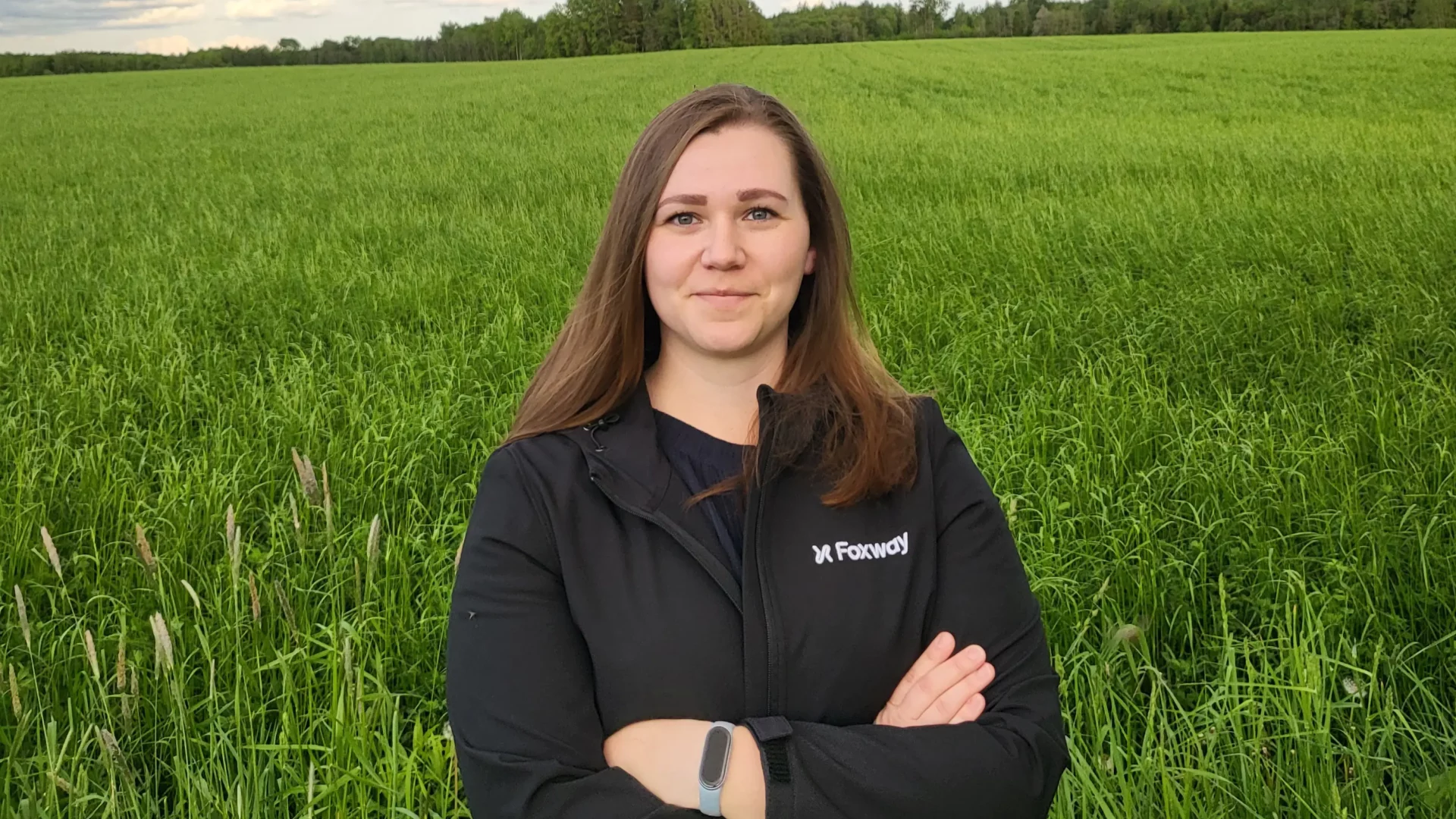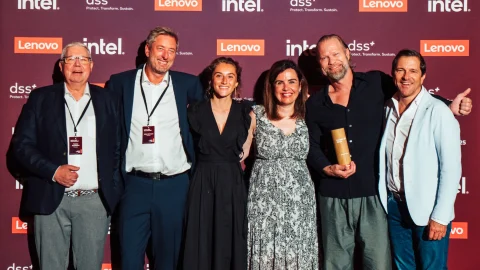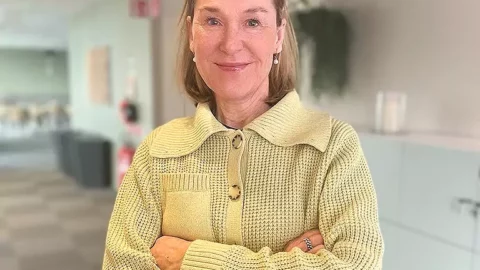Specialists like our Environmental Manager Katrina Kaasik play a key role in making sure we don’t just follow the rules, but make smart, informed choices that reduce our environmental impact day by day.
In recognition of World Environment Day, Katrina shares insights into her work, what drives her, and why deep environmental expertise matters, especially in a company like Foxway.
How would you describe your role at the company?
I try to navigate in the space where the environment and business can both thrive. It’s an aera where we all write the playbook as we carry out our activities but keeping that balance in mind is what makes it feasible.
A lot of my day-to-day involves waste-related topics, but my focus is on how we can use fewer resources to begin with. That means advising teams, raising awareness, and making sure we’re not just ticking the legal boxes but doing better wherever we can.
One of my goals is to help colleagues better understand the environmental impact of our actions. I’m happy to say, that at Foxway, I can see our suggestions become actions that truly improve our work. It’s not just theory—it’s real change, both internally and in how we work with partners.
How does your role contribute to the value our customers receive?
A big part of my work is making sure we meet legal requirements, but also our customers’ expectations. On top of that, I help reduce our environmental footprint. The more we reduce our own negative impact, the more we can support the circular economy and deliver real value as a company.
What’s your background and experience as a specialist?
I have a Bachelor’s degree in Environmental Management and a Master’s in Industrial Ecology. I started working in the field while finishing my undergrad. More specifically, I spent three years focusing on hazardous waste management, and about 1,5 years providing environmental consulting as a service. The latter was my main focus before joining Foxway, but in total, I’ve worked in the field for about 6 years now.
At first, I thought educating people on topics involving waste management was my favorite part, but over time I realized the real impact comes from addressing the root causes. Why are we generating waste in the first place? How can we avoid it entirely? It’s about using only what we truly need.
Did you have any expectations when joining Foxway and how do they fit together with what you have experienced so far?
I’ve been at Foxway for almost two years now. I did have a general understanding of what the company does beforehand. Foxway is quite visible in Tartu, so you naturally get curious and run a quick search online. But what really gave me the confidence to apply were the people I knew who spoke so positively about working here. Moreover, the actual job description ticked a lot of boxes for me, so it was a relatively easy choice.
I started as an environmental specialist focusing on our Estonian operations, and now I’ve expanded to support our teams in Germany and Spain. I knew Foxway was an international company, but I never imagined I’d really get to work with such an international team in my day to day—that’s been a huge bonus.
Is there something you’re especially proud of, or perhaps you can share something exciting still in the works?
As a typical Estonian, self-praise doesn’t come easy—it feels normal to just do what needs to be done. But I’m proud of founding the Green Foxes group, our internal forum for colleagues who wish to speak up and share ideas regarding all topics concerning the environment. It’s a safe space for the wildest ideas, it helps spread knowledge, and keeps the conversation going.
I’ve also been giving intro courses on materials science at the Tartu Art School—while teaching as such isn’t in the cards for me on a regular basis, it was a great experience to connect education with real-world sustainability work.
On a more policy-related note, I’ve recently been focusing on the topic of extended producer responsibility (EPR). Even though our core business model is device reuse, today, we’re viewed as producers of tech by law. Companies like Foxway are simply too new, which means existing legislation needs to be rethought to better reflect the full picture. Luckily, the first steps we’ve taken toward creating further clarity are promising. It’s not a local issue; the situation is the same across Europe. Circularity is a hot topic, but we also need regulations to support reaching those goals.
What does circular tech and authentic sustainability mean to you?
It means delivering on our promises. That we give equal weight to business, environmental, and social considerations. If there’s a better way, we go for it—not just when we’re legally required to.
From a resource perspective, it’s about using what we need wisely. As an environmentalist, I want to say the environment should come first—but I know balance is key.
We’re living through a polycrisis. Which signs of it can you recognize in your day-to-day work?
The sharp rise in consumption across industries is becoming impossible to ignore. It’s showing up in ways that are deeply concerning. But mitigation is still possible. That’s what we do at Foxway every day. You can tackle things at the grassroots level if environmentally aware people and specialists are part of the conversation in the right place, at the right time.
In your view, how does World Environment Day relate to our business sector?
I do keep track of environment focused awareness days, and I do think they matter, especially when the actions we’re taking are part of our day-to-day and lead to feasible improvements.
The World Environment Day focuses heavily on plastic pollution. In our industry, we speak a lot about the rare minerals in tech devices and how prolonging the lifetime of tech helps us keep those valuable materials in use for longer. The same devices also contain a lot of plastic—yet again a material made from a finite resource. So the more we can avoid the linear take-make-waste scenario and extend material use, the better.
Is there anything you’d like to leave with readers as a key takeaway?
Consume mindfully. Think more in terms of actual needs than wants. It’s not always easy to do, but once in the habit, it’s also hard to go back.
We are Foxway


